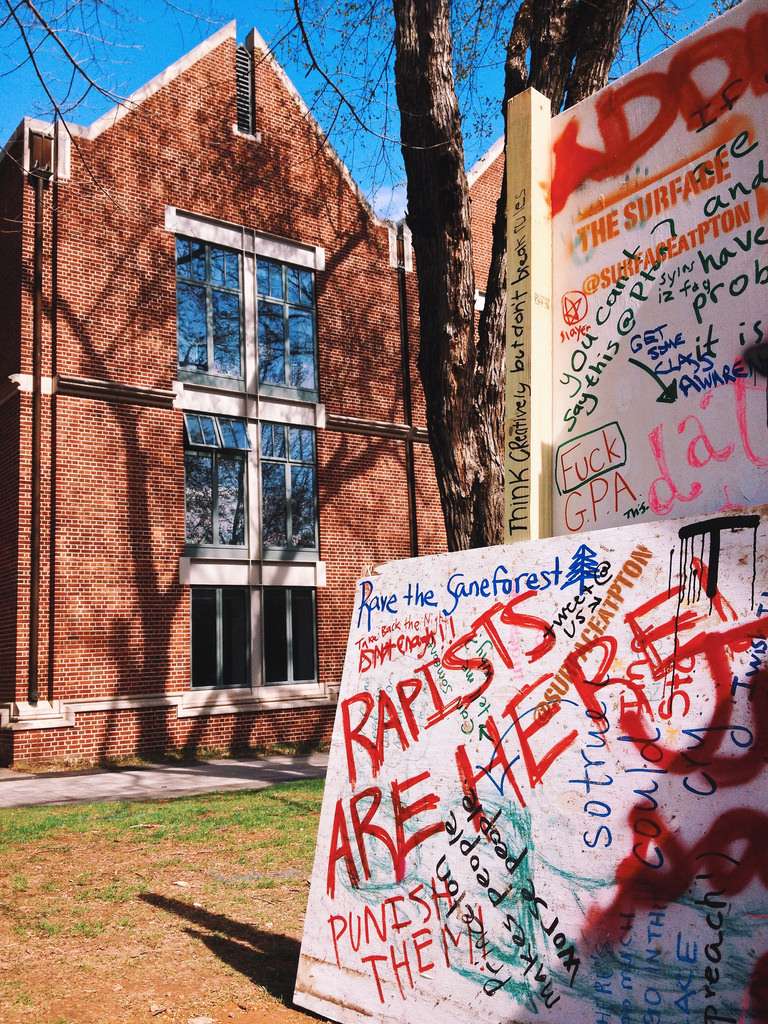A Different Way for Libertarians to Look at 'Rape Culture'


A few days ago, my colleague Robby Soave blogged about a talk on Brown University's campus between Guardian columnist Jessica Valenti and Canadian author Wendy McElroy. Robby was sympathetic to McElroy's view about "rape culture", which seems to be that the term should be reserved for cultures where rape is used liberally and systematically as a tool of terror, subjugation, or war. Both scoffed at Valenti's comment that rape jokes could contribute to U.S. assault rates. "Rape is the work of a small number of serial predators, rather than a cultural phenomenon," wrote Soave.
But why can't it be both? Perhaps rape is something best looked at as a phenomenon driven by a small number of serial predators that are enabled by the culture. Callous attitudes toward rape don't "cause" rape, but they could—in aggregate—create conditions where it's easier for rapists to do so.
Do Valenti and company overstate the extent to which socialization influences rapists? Sometimes. But there's also a tendency among conservatives and many libertarians to dismiss feminist talk of "rape culture" as patently absurd. And I like to think (or hope, at least) that this is partly a function of parties talking past one another.
Much of the skepticism surrounding "rape culture"—and from here I'm moving beyond Soave or McElroy's critiques to criticism more broadly—takes the term to imply a) radical Islam-levels of female oppression, b) coordinated male conspiracy, or c) a consensus that all elements of rape culture contribute equally to rape rates.
But when feminists decry rape culture in the U.S., they're not suggesting life for American women is literally a constant struggle to avoid being raped. No one's saying we face the same level of sexual violence as women in, say, Syria right now. That would be absurd. Which is why I find the "South Africa—now there's a rape culture, ladies!" argument to be oversimplified and unproductive. "If somebody else has it much worse, that doesn't really change the fact that you have what you have," to quote a navel-gazing coming-of-age novel. We don't need to be experiencing epidemic levels of sexual violence to still be experiencing too much sexual violence and, perhaps, have a conversation about how culture contributes to that.
Invoking "rape culture" is simply a way of looking, academically or anecdotally, at how the ephemera around sex and sexual violence may systematically create subtle biases in behavior and perception. That's all "rape culture" really means: that certain beliefs and norms in our society may make it easier for sexual violence to take place.
These norms aren't generally seen by feminists as some coordinated, intentional campaign of "the patriarchy." As Cory Massimino wrote recently at Students For Liberty, it may be best to think of rape culture as spontaneous order. "There is no conscious effort on the part of men to establish 'rape culture' as we know it," writes Massimino. "However, the actions of rapists"—and here I would also add the unwitting people who perpetuate certain ideas about sex and sexual violence—"have unconsciously created an unplanned culture that afflicts all women and men."
Does hearing rape jokes make an individual likely to suddenly go and commit rape? Of course not—sexual assault is largely perpetrated by people with premeditated intent, not people bizarrely lured to it by the power of suggestive humor. But I'd say it's also uncontroversial that the meta ways in which we talk and think about rape can contribute to how we treat rapists and rape victims in law, media, and society at large.
And this is what Valenti and other feminists fret over: cavalier attitudes toward rape could contribute to a culture where the seriousness of the violation is devalued. And while this devaluation won't drive more people to start committing assault, it could allow those who do to thrive.
The idea isn't that "rape culture" directly causes rape, but that it makes people less likely to speak up if they have been assaulted, or less likely to speak out against someone they know has committed sexual assault. That it drives online threats and harassment. That it influences the way our police and the criminal justice system treat sexual assault allegations.
It's not just about rape jokes, either, but sexual norms more broadly. We've come a long way, but there is still a very pervasive idea in American culture that men want sex (always, from whoever, however) for sex itself and women only use sex, withholding it and then doling it out in exchange for drinks or love or good behavior. That women say no because they want to be chased. That women should say no so they can be chased. That sex is not something two people do to have fun together but something we give or take from one another.
How much difference does any of this make when it comes to actual rape rates? I have no idea. Neither does anyone else, really. It's key to remember that we're all just playing armchair sociologist here. (I also want to stress that believing cultural attitudes matter isn't the same as saying no one should ever joke about rape.) But I believe these are all legit areas of inquiry and discussion—especially for those of us who would reject more heavy-handed government intervention into things like how colleges handle sexual assault or how law enforcement reacts to rape threats on Twitter.
To sum up, talking about "rape culture" isn't meant as an indictment of men, masculinity, or expressions thereof. It is an indictment of rapists—and an acknowledgement that maybe, in myriad tiny ways, we all make it a little bit easier or harder for them to get away with it.


Show Comments (169)